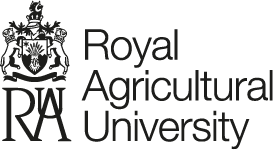Assessment of the socio-economic impacts associated with the arrival of apple snail (Pomacea canaliculata) in Mwea irrigation scheme, Kenya
Constantine, Kate L., Makale, Fernadis, Mugambi, Idah, Chacha, Duncan, Rware, Harrison, Muvea, Alexander, Kipngetich, Vincent K., Tambo, Justice, Ogunmodede, Adewale, Djeddour, Djami, Pratt, Corin F., Rwomushana, Ivan and Williams, Frances (2023) Assessment of the socio-economic impacts associated with the arrival of apple snail (Pomacea canaliculata) in Mwea irrigation scheme, Kenya. Pest Management Science, 79 (11). pp. 4343-4356.
|
Text
Pest Management Science - 2023 - Constantine - Assessment of the socio‐economic impacts associated with the arrival of.pdf - Published Version Available under License Creative Commons Attribution. Download (1MB) | Preview |
Abstract
Background: In Kenya, rice (Oryza sativa L.) is mainly produced under irrigation by small-scale farmers. Mwea irrigation scheme (MIS) in Kirinyaga County accounts for 80–88% of rice production. Here, rice is the main source of livelihood and a source of revenue generation for the county. However, a recently established invasive freshwater snail, Pomacea canaliculata (Lamarck) (family: Ampullariidae), a species of apple snail, presents a serious threat to rice production. Results: Household surveys, focus group discussions and key informant interviews highlight apple snail as a serious problem in MIS. Households that observed at least a moderate level of infestation (>20% of cultivated area) experienced significant reductions in rice yield (∼14%) and net rice income (∼60%). Farmers reported increased use of chemical pesticides for management of apple snail. In addition, the cost of hired labor for physical removal of egg masses and snails is resulting in substantial negative effects on net income. Farmer age, area of land owned, responsibility for decision-making, receipt of extension advice, training, and membership of a farmer organization, were all statistically significant variables to explain farmers awareness of the need for area-wide apple snail management. Conclusion: Strategies to limit the spread of apple snail are urgently needed. A Multi-Institutional Technical Team (MITT) has been established to spearhead management efforts and consolidate advice to farmers on how to manage apple snail. However, without action to mitigate spread, the consequences could be disastrous for rice production and food security in Kenya, and for other rice growing regions across Africa.
| Item Type: | Article |
|---|---|
| Keywords: | apple snail, invasive species, rice, livelihood, Mwea, Kenya |
| Divisions: | Land and Property Management |
| Depositing User: | Adewale .Ogunmodede |
| Date Deposited: | 28 Oct 2024 11:22 |
| Last Modified: | 28 Oct 2024 11:22 |
| URI: | https://rau.repository.guildhe.ac.uk/id/eprint/16803 |
Actions (login required)
 |
Edit Item |

